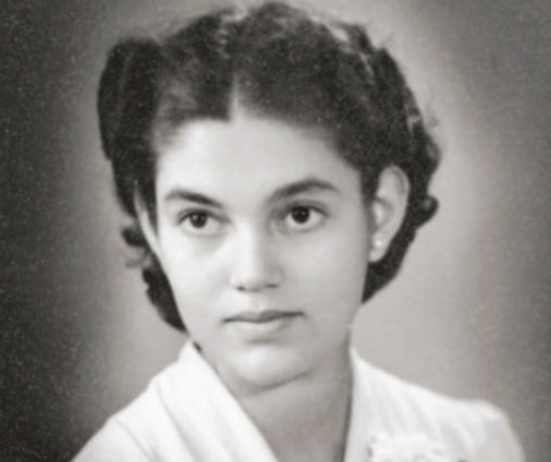Then in 1992, when she was almost 70, God suddenly set her life-task before her. Three elderly Korean war-rape victims spoke out on television and inspired her to do the same. If she backed them up, adding her European voice to theirs, they might together get Japan's attention. The only hard part of her decision was that she had to tell her daughters the secret first. She could not do so face to face. Instead she wrote two copies of what she called "Cry of the Raped", stuffed them into envelopes and left them to be read.
然后在1992年,當奧赫恩快70歲時,上帝突然把她一生的任務擺到她面前。 三位上了年紀的韓國戰爭強奸受害者在電視上發表了自己的看法,并激勵她也這么做。如果奧赫恩支持他們,加上她歐洲的發言,他們一塊可能會得到日本的注意。這個決定的最難的部分是,她得先把這個秘密告訴她的女兒。奧赫恩面對面做不到這件事。相反,她寫了兩份她稱為“被強奸者的哭聲”的信,把信放在信封里給他們讀。
But the deed was done. She could let her awful secret out to the world now, not as a "comfort woman"—how she hated that insulting, cuddly name—not as an angry victim seeking revenge, but as a calmly spoken witness who wanted Japan to admit what its soldiers had done to perhaps 200,000 women like herself. Released and relieved, she addressed a war-crimes hearing in Tokyo, gave testimony to Congress and, whenever victims gathered, hugged and encouraged them. They won some compensation, though she herself would not accept it, since Japan's right-wing government still refused to make a full apology. Now that the story was out, the case for one was overwhelming.
但是事情已經發生了。她現在可以把她糟糕的秘密公之于眾了,不是作為一個“慰安婦”-她痛恨這個侮辱人的,逗人喜愛的名字-不是作為一個尋求復仇的憤怒的受害者,而是作為一個冷靜的證人,一個想要日本承認他們的士兵向像她這樣的可能有200000女性做過的事情。奧赫恩獲釋后如釋重負,在東京的一個戰爭罪行聽證會上發表了講話,每當受害者聚集、擁抱和鼓勵他們的時候,就去國會作證。她們贏得了一些賠償金,但是奧赫恩不會接受它,因為日本的右翼政府仍然拒絕作出全面道歉。既然這個故事已經公諸于世,那么理由就很充分了。

Time and again she thought of the passage from Ephesians 5 which Sister Xavier had made her learn at school, when she had tried to cheat in an exam: "The things which are done in secret are things that people are ashamed even to speak of; but anything exposed by the light will be illuminated, and anything illuminated turns into light." So it had proved. And the white handkerchief, too, had left the darkness of the drawer. She had given it to the Australian War Memorial, where it stood on display and shone: seven testifying, suffering names to speak for all the others.
她一次又一次地想起姐姐澤維爾讓她在學校學習《以弗所書》第5章,那之前她試圖在考試中作弊:“在隱密處所行的事,就是人們羞于啟齒的事情;但是任何被光照到的事情都將是光明的,任何光明的事情都會化成光。”這件事證明了這一點。白手帕也離開了抽屜中的黑暗。她已經把它交給了澳大利亞戰爭紀念館,它陳列在那里,閃閃發光:七個作證的、痛苦的名字代表了所有其他人。
譯文由可可原創,僅供學習交流使用,未經許可請勿轉載。












